drinking soft water or not
redmax
12 years ago
Related Stories
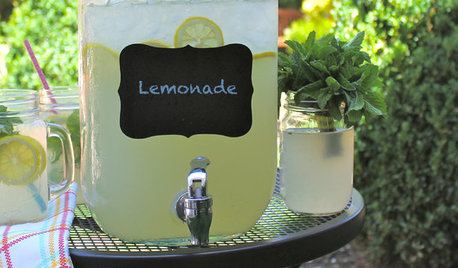
Houzz Products: Cool Ideas for Summer Drinks
Just the sight of these beverage dispensers, summery linens and bar accoutrements might cool down your guests
Full Story0

KITCHEN DESIGNSoft Hues Create a Calm Mood in a Historic Kitchen
Mellow colors, curved edges and quality materials help this kitchen in a Georgian townhouse feel relaxed while functioning beautifully
Full Story
DECORATING GUIDESRoom of the Day: Softly Elegant Look for a Formal Parlor Room
A design duo adds modern touches that honor historic architectural details while bringing the room up to date
Full Story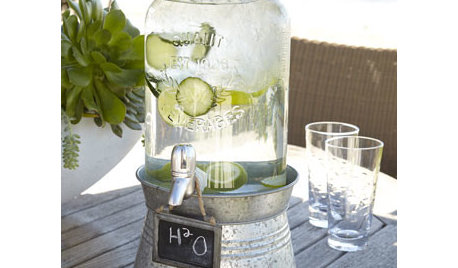
Guest Picks: We'll Drink to These!
Keep favorite summer drinks cold and at the ready with stylish holders and dispensers that are easy to take outside
Full Story
DECORATING GUIDESIcy Summer Drinks Reimagined as Rooms
Cool, refreshing decor schemes conjure your favorite thirst quenchers, from lemonade to a vanilla shake
Full Story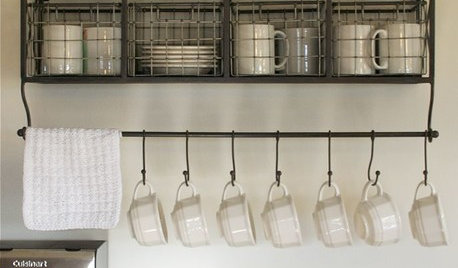
KITCHEN DESIGNHot-Drink Stations Hit the Spot
Beverage bars brimming with cocoa, tea, coffee and all the accoutrements make winter entertaining a delight
Full Story
GARDENING GUIDESGreat Garden Combo: 3 Soft-Looking Plants for a Dry Climate
Weave a romantic tapestry with this drought-tolerant combination of plants as tough as they are lovely
Full Story
DECORATING GUIDES'Soft Modern' Style Offers Best of Both Worlds
Mix in a few curves and soft colors but nix the clutter, and the happy result is a balanced new take on modern design
Full Story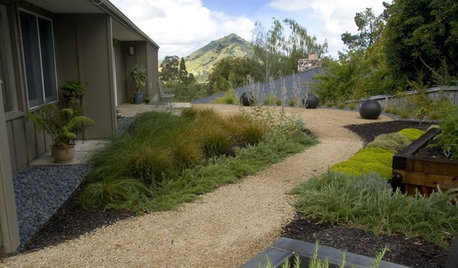
GARDENING AND LANDSCAPINGHardscaping Shows Its Soft Side
Who says hardscaping has to be hard? Consider these gentle, sustainable and DIY-friendly alternatives
Full Story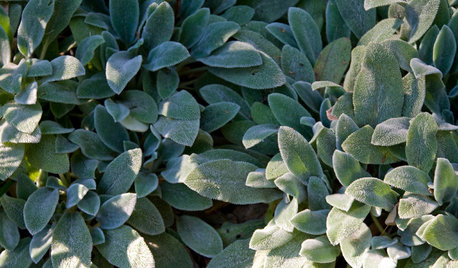
FOLIAGEThe Right Touch: 13 Soft, Fuzzy Plants for Gardens and Pots
Brush a hand on velvety foliage or fluffy plumes for a sensory garden experience beyond sight and smell
Full StorySponsored
Franklin County's Custom Kitchen & Bath Designs for Everyday Living
More Discussions






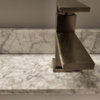
greg_2010
ionized_gw
Related Professionals
Sunrise Manor Kitchen & Bathroom Remodelers · Artondale Kitchen & Bathroom Remodelers · Boca Raton Kitchen & Bathroom Remodelers · Cleveland Kitchen & Bathroom Remodelers · Ewa Beach Kitchen & Bathroom Remodelers · Glen Allen Kitchen & Bathroom Remodelers · Hickory Kitchen & Bathroom Remodelers · Hunters Creek Kitchen & Bathroom Remodelers · Niles Kitchen & Bathroom Remodelers · Phoenix Kitchen & Bathroom Remodelers · Red Bank Kitchen & Bathroom Remodelers · Rolling Hills Estates Kitchen & Bathroom Remodelers · San Juan Capistrano Kitchen & Bathroom Remodelers · Walnut Creek Kitchen & Bathroom Remodelers · Weston Kitchen & Bathroom RemodelersUser
greg_2010
User
brickeyee
User
hendricus
User
User
brickeyee
ionized_gw
brickeyee
ionized_gw
hendricus